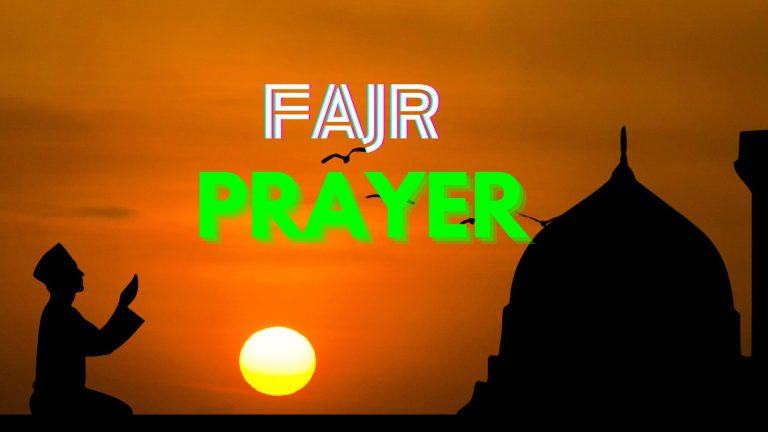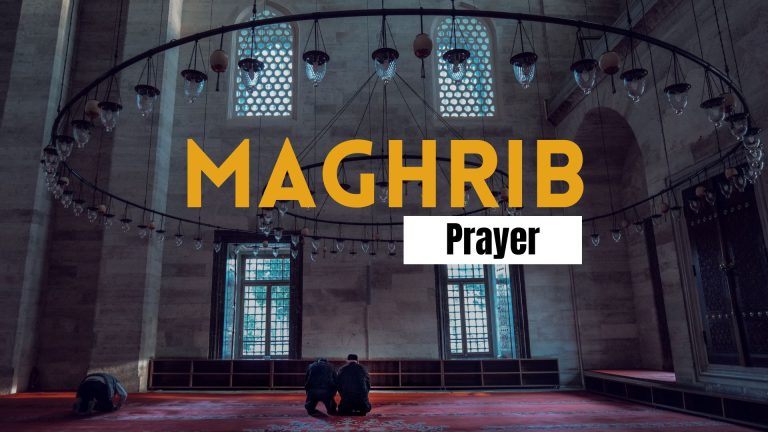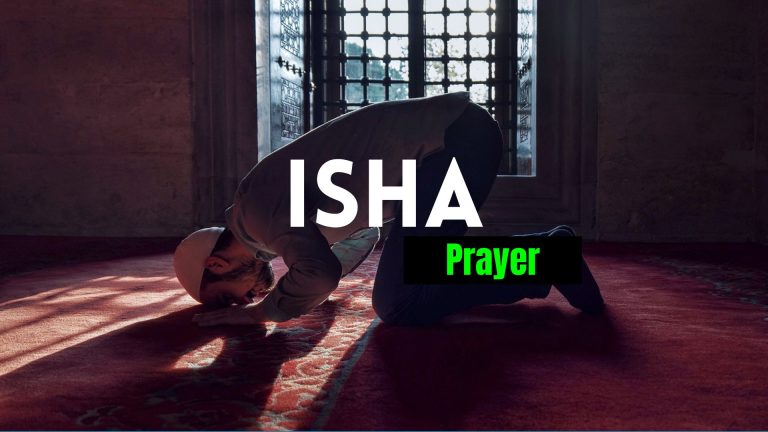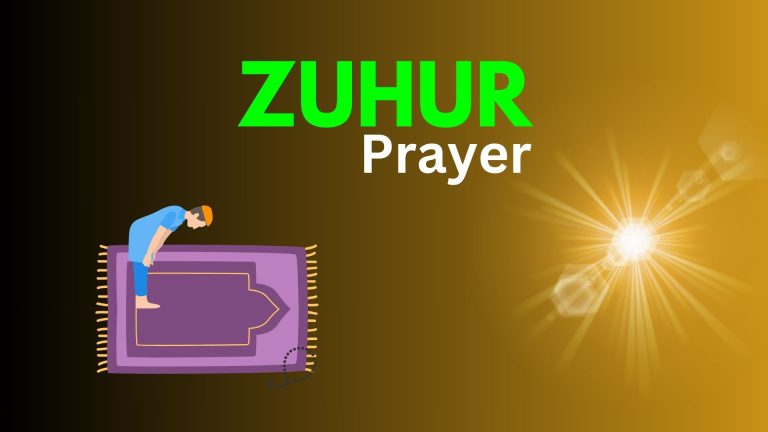Tahajjud Prayer and Its Importance in Life
Tahajjud is an Arabic term that means staying awake at night. It is also referred to as the night prayer. This prayer is performed between the Isha and Fajr prayers, requiring one to wake up at night to offer it. Tahajjud is considered highly rewarding, as it is mentioned in the Quran and emphasized by the Prophet Muhammad (PBUH). Learn more about it and its significance.

About Tahajjud Prayer
Tahajjud falls under the category of Nafl, or optional prayers, meaning that missing it is not considered a sin. It is typically performed after the Isha prayer and before the Fajr prayer. The name Tahajjud comes from the idea of giving up sleep, so it is preferably performed during the last third of the night.
In Islam, it is believed that during this time, Allah descends to the lowest heaven to observe who is earnestly worshiping and sacrificing their sleep to pray.
Performing Tahajjud is a voluntary act of worship that holds great significance in Islam.
Here is a guide based on the teachings of Prophet Muhammad (PBUH) on how to perform Tahajjud:
Number of Rakats
While the number of rakats for Tahajjud is flexible, it is commonly performed in sets of two rakats. The Prophet Muhammad (PBUH) often prayed 8 rakats in Tahajjud, but the number can vary based on personal choice and ability.
Preparation
- Make an intention (niyyah) to perform Tahajjud.
- Wake up in the last third of the night by setting an alarm or asking someone to wake you.
- Perform ablution (wudu) to purify yourself before the prayer.
- Find a clean and quiet place to pray, free from distractions.
- Focus your mind and heart solely on Allah, putting aside all worries and distractions.
Performing the Prayer
- Start the prayer with the intention of Tahajjud, saying “Allahu Akbar” (Allah is the Greatest) to begin.
- Recite the opening supplication (dua) if you wish.
- Begin the prayer with the recitation of Surah Al-Fatihah, followed by another surah or verses from the Quran.
- Perform the ruku (bowing) and sujud (prostration) with humility and devotion.
- Repeat these steps for the desired number of rakats.
- End the prayer with the Taslim (salutation), turning your head to the right and saying “Assalamu Alaikum wa Rahmatullah” (Peace be upon you and the mercy of Allah).
Performing Tahajjud is a way to seek forgiveness, mercy, and blessings from Allah. It is a deeply personal and spiritual experience that strengthens one’s connection with the Creator.
When To Pray Tahajjud?
The Tahajjud prayer, also known as the prayer of the night, is typically performed after the Isha prayer (the compulsory nightly prayer) and before the Fajr prayer (the mandatory morning prayer). It is ideally offered during the last third of the night, the time before Fajr, but it can be performed at any time throughout the night after Isha.
This time is considered very blessed, as Allah SWT descends to the lowest heaven during the last third of the night, seeking to answer the invocations of believers.
Narrated Abu Huraira: Allah’s Messenger said,
“Our Lord, the Blessed, the Superior, comes every night down on the nearest Heaven to us when the last third of the night remains, saying: ‘Is there anyone to invoke Me, so that I may respond to invocation? Is there anyone to ask Me so I may grant him his request? Is there anyone seeking My forgiveness so that I may forgive him?’’
(Sahih al-Bukhari 1145)
Abu Huraira (may Allah be pleased with him) reported that the Messenger of Allah (peace and blessings be upon him) was asked about the best prayer after the obligatory prayers. He replied: “The best prayer after the obligatory prayers is the prayer in the middle of the night.”
We are encouraged to dedicate a portion of the night to observe these Sunnah acts of worship. Allah SWT Himself acknowledges this practice in the Quran:
“Indeed, the night hours are more effective for concurrence [of heart and tongue] and more suitable for words. Indeed, for you, by day, it is a prolonged occupation. And remember the name of your Lord and devote yourself to Him with [complete] devotion.” (Qur’an, 73:6-8)
Importance of Tahajjud prayer

Benefits Of Tahajjud
The Tahajjud prayer, also known as Qiyam-ul-lail, offers numerous benefits and rewards for those who perform it. Here are some of its benefits, along with references from Hadiths and the Quran:
Closeness to Allah
The Tahajjud is a means of gaining proximity to Allah. It is a practice of the pious and serves as a barrier from sins and expiation for transgressions. The Prophet Muhammad (PBUH) said, “Be vigilant in standing up [in prayer] at night, for it was the practice of the pious before you. It is a means of gaining proximity to Allah Ta’ala, expiation for transgressions, and a barrier from sins.” (Tirmidhi)
Mentioned in the Quran
The Quran praises those who devote part of the night to their Lord in prostration and standing in prayer. It is a characteristic of the servants of the Most Merciful (Allah).
The Quran states, “And the servants of the Most Merciful Allah are those who walk upon the earth easily, and when the ignorant address them, they say [words of] peace, and devote [part of] the night to their Lord prostrating and standing [in prayer].” (Quran 25:63-64)
Inner Strength and Mental Peace
Tahajjud provides inner strength, mental peace, and the ability to avert acts of sin and wickedness. The third part of the night is considered the best time to make wishes and duas.
The Prophet Muhammad (PBUH) said, “During the night, there is a time when the Muslim does not ask for the good of this world and the Hereafter, but it will be given to him, and that happens every night.”
Solving Everyday Problems
Tahajjud is known to be the best among the voluntary prayers and helps with everyday problems. Believers receive assistance from the Almighty by trusting Allah completely and leaving all worries. Allah provides from sources one could never imagine, and those who trust Allah find sufficiency.
The Quran says, “And He will provide him from (sources) he never could imagine. And whosoever puts his trust in Allah, then He will suffice him. Verily, Allah will accomplish his purpose. Indeed, Allah has set a measure for all things.” (Surah Talaq Ch 65, V3)
Granting Patience
Tahajjud grants patience even in the face of problems and brings peace to the distressed heart. The Prophet Muhammad (PBUH) said, “The closest that the Lord is to His slave is in the latter part of the night, so if you can be one of those who remember Allah at that time, then do so.” (Al-Tirmidhi and al-Nisaa’i)
Performing Tahajjud prayer is a way to seek closeness to Allah, gain strength and peace of mind, and seek assistance in everyday matters. It is a practice highly recommended in Islam for its spiritual and worldly benefits.
FAQs
Is Tahajjud prayer obligatory (Fard)?
Tahajjud is an optional (Nafl), not obligatory (Fard). Missing it is not considered a sin in Islam. However, it is highly recommended and holds great rewards for those who perform it.
When is the best time to pray, Tahajjud?
The best time to pray Tahajjud is during the last third of the night, after the Isha prayer and before the Fajr prayer. It is when Allah descends to the lowest heaven, making it a blessed time for worship and supplication.
How many rakats should be prayed in Tahajjud?
The number of rakats for Tahajjud is flexible, but it is commonly performed in sets of two rakats. The Prophet Muhammad (PBUH) often prayed 8 rakats in Tahajjud, but the number can vary based on personal choice and ability. Some may pray more or fewer rakats based on their capacity and devotion.
What are the benefits of praying Tahajjud?
Praying Tahajjud offers numerous benefits, both spiritual and worldly. It is a means of gaining closeness to Allah and seeking His forgiveness, mercy, and blessings. It provides inner strength, mental peace, and the ability to avert acts of sin and wickedness. Additionally, it is mentioned in the Quran as a praiseworthy act that may lead to being resurrected to a praised station.
Can Tahajjud be prayed after midnight?
Yes, Tahajjud can be prayed after midnight, but praying during the last third of the night is preferable. However, if one cannot wake up during this time, one can still pray to Tahajjud after midnight and before the Fajr prayer. The key is to strive to pray at the most virtuous time possible.
Conclusion
Tahajjud prayer, also known as the night prayer, is a voluntary act of worship that holds great significance in Islam. It is performed after the Isha prayer and before the Fajr prayer, ideally during the last third of the night.
Tahajjud offers numerous benefits, including gaining closeness to Allah, inner strength, mental peace, and the ability to avert acts of sin and wickedness. It is a practice highly recommended in Islam for its spiritual and worldly benefits.





